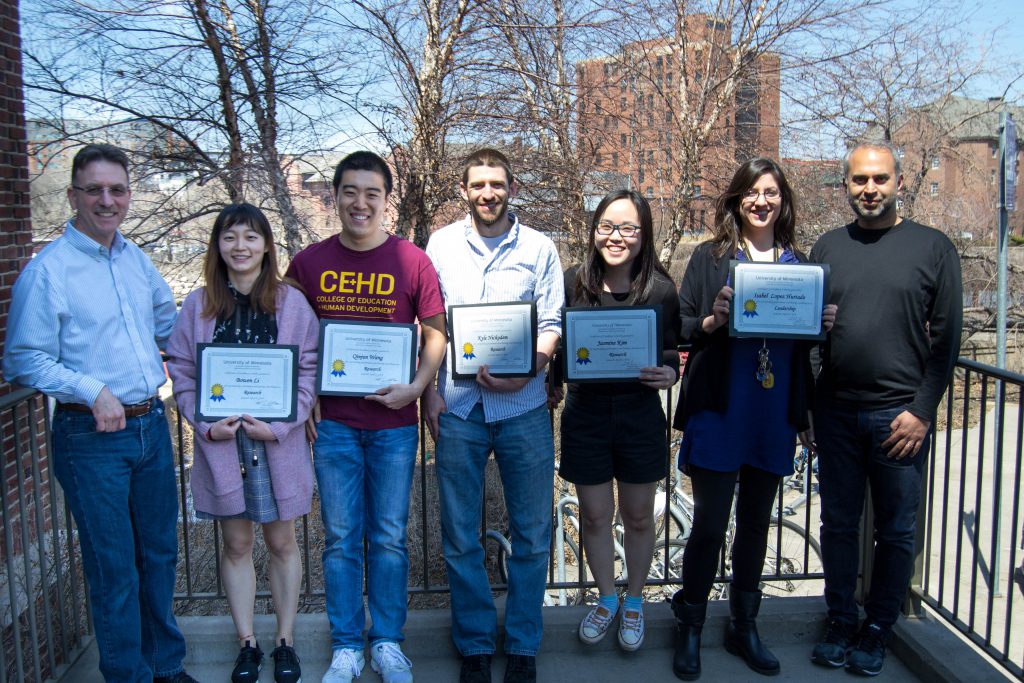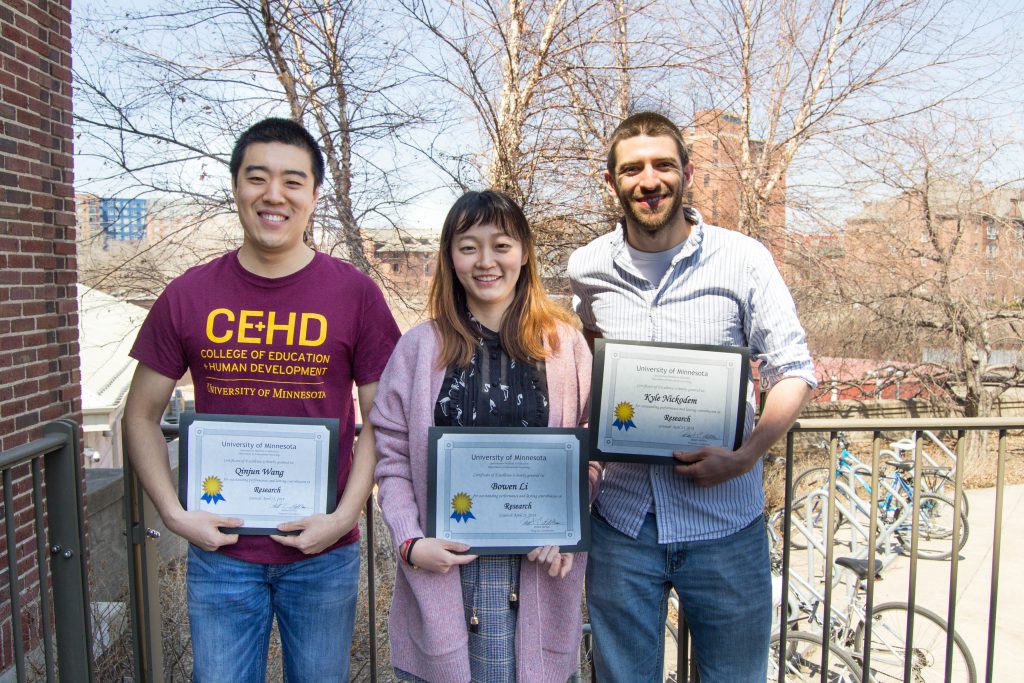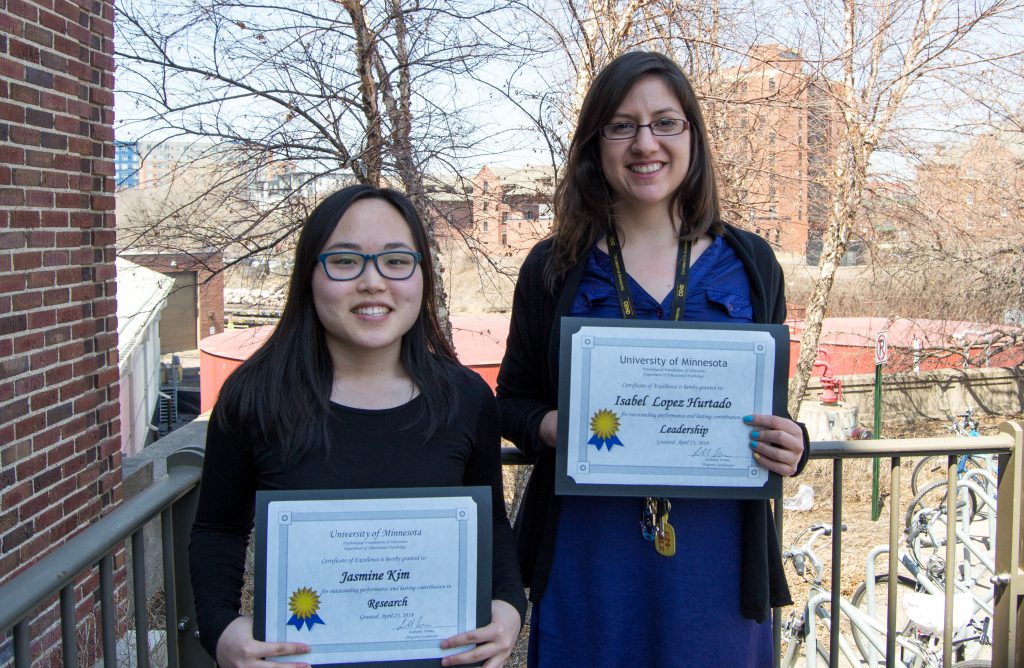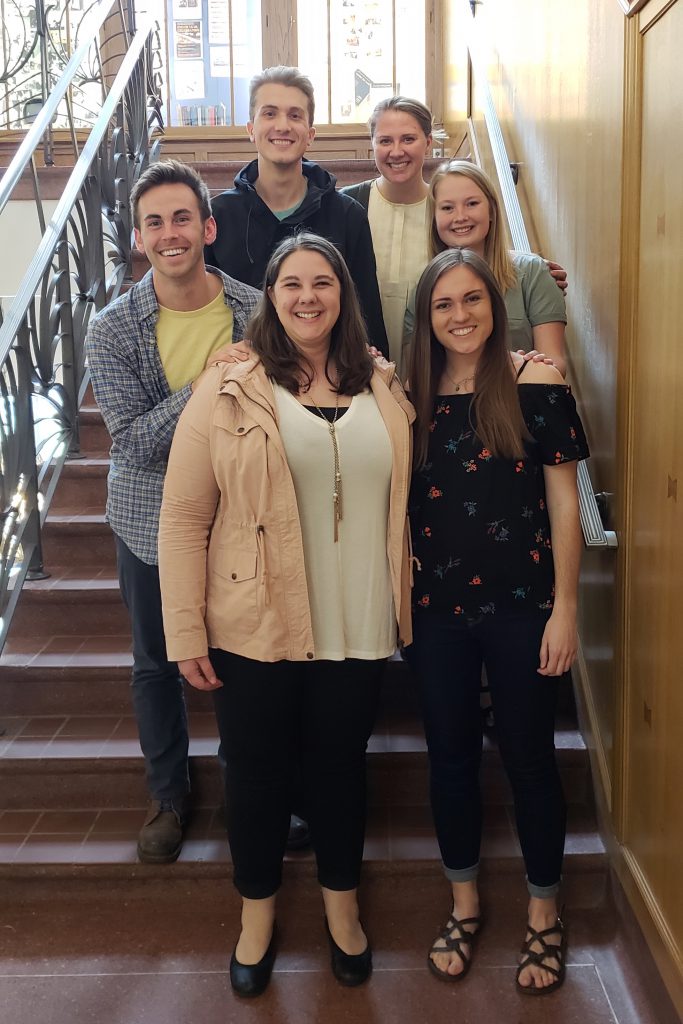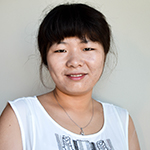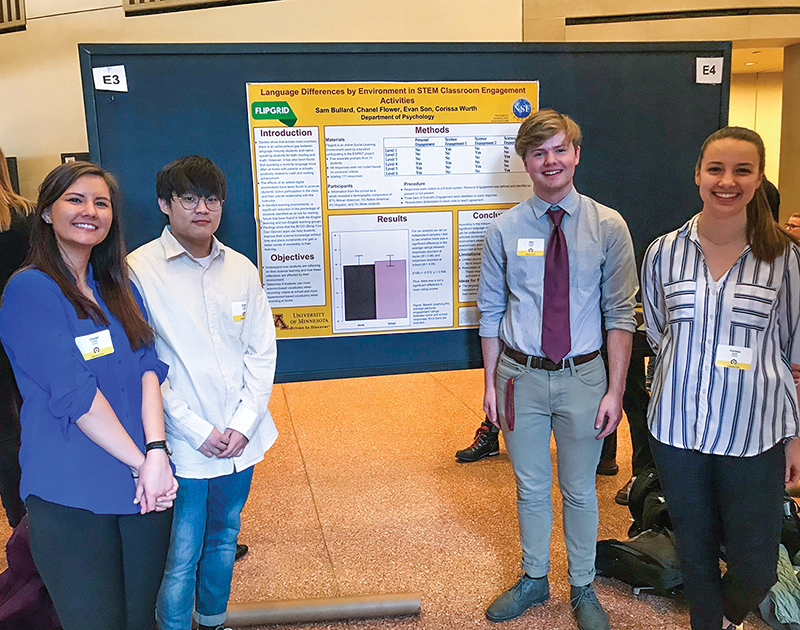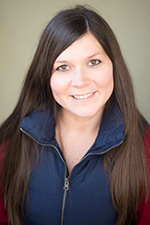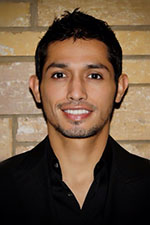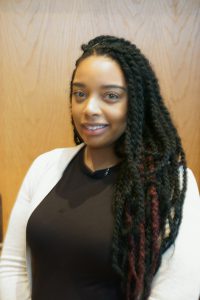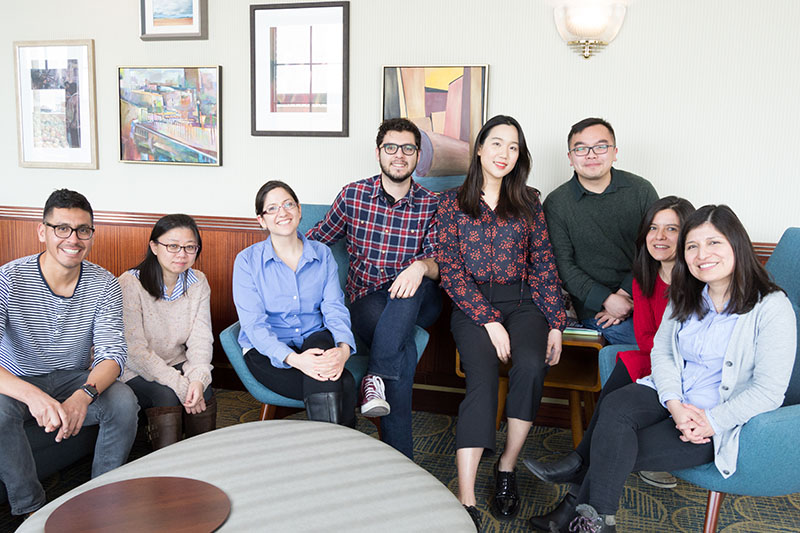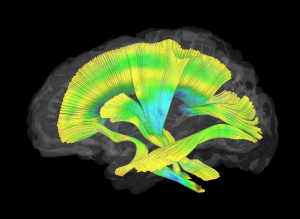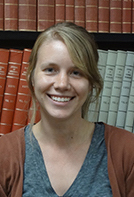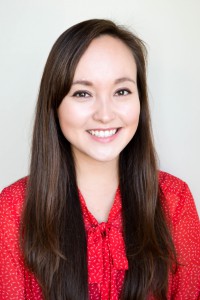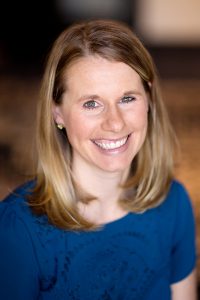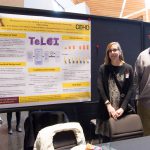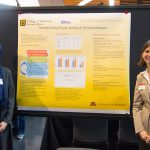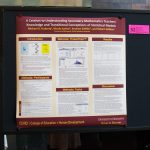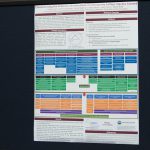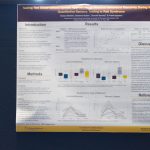The following presentations were made by the Department of Educational Psychology’s quantitative methods in education program students and faculty at this year’s American Educational Research Association (AERA) and National Council on Measurement in Education (NCME) annual meetings, held jointly in New York City, April 13-17.
Guzey, S., Peralta*, Y., Song*, W., Harwell, M.R. & Moore, T. (2018, April). The impact of intense professional development on student STEM achievement and attitudes towards STEM.
Jitendra, A.K., Harwell, M.R., Im*, S.-h., Karl*, S.R., & Slater, S.C. (2018, April). Replicating the effects of experienced and novice implementers of SBI on students’ proportional problem solving.
Im*, S.-h., Harwell, M.R., Jitendra, A.K., Karl*, S.R., & Slater, S.C. (2018, April). The impact of a research-based intervention to improve seventh-grade students’ proportional problem solving: A regression discontinuity design.
Davenport, E. & *Zopluoglu, C. (2018, April) Dimensionality as it Relates to Factor Analysis and Item Response Theory.
Davenport, E. & Davison, M. (2018, April) Dimensionality for Composites from SubScores from Different Latent Entities.
Davenport, E. & *Kang, Y. (2018, April) Dimensionality and Item Parcels.
Davenport, E., Davison, M., *Zopluglu, C., *Kang, Y. (2018, April) Dimensionality and the Meaning of Composites.
*Ersan, O., *Kang, Y., Rodriguez, M.C., *Do, Tai, *Lamm, R. (2018, April) Mental distress: Risk and protective factors among American Indian youth. [AERA SIG – Indigenous Peoples of the Americas] Paper Session: Place, Pathways, Persistence, and Protection in Schooling.
*Nickodem, K., *Van Boekel, M., *Kang, Y., *Lamm, R., Rodriguez, M.C. (2018, April) School and community sports participation and positive youth developmental: A multilevel analysis. [AERA SIG- Research Focus on Education and Sports.] Paper Session: Youth Development through Sport in a K-12 Context.
*Song, W., *Vue, K., *Do, T., Rodriguez, M.C. (2018, April) Social capital, self-control, and academic achievement in adolescence: A structural equation modeling approach. [AERA SIG – Social and Emotional Learning] Paper Session: Social and Emotional Learning and Academic Achievement.
*Lamm, R., *Vue, K, *Nickodem, K., *Do, T., Rodriguez, M.C. (2018, April) The role of out-of-school-time positive experiences on risky behaviors. [AERA Division G – Section 1: Micro-analyses of the social context of teaching and learning] Roundtable: Qualitative Research Perspectives on the Roles of Students and Teachers in the Social Contexts of U.S. Public Schools.
*Lamm, R., *Vue, K., *Do, Tai, *Nickodem, K., Rodriguez, M.C. (2018, April) Do LGB students feel safe and why does it matter? [AERA SIG – Research Focus on Education and Sports] Paper Session: Youth Development through Sport in a K-12 Context.
*Cabrera, J., Rodriguez, M.C., *Karl, S., *Chavez, C. (2018, April) In what ways do health behaviors impact academic performance, educational aspirations, and commitment to learning? [AERA Division H – Section 1: Applied Research in Schools] Paper Session: Examining Non-Cognitive and Behavioral Outcomes.
*Kang, Y., *Smith, M., *Ersan, O., Rodriguez, M.C. (2018, April) A pathway to resilience for students who experience trauma: A structural equation modeling approach. [AERA SIG – Adolescence and Youth Development] Paper Session: Leadership & Social Relationships in Adolescent Development.
*Cabrera, J., *Karl, S., *Chavez, C., Rodriguez, M.C. (2018, April) Investigating socioeconomic status proxies: is one proxy enough? [AERA SIG – Survey Research in Education] Paper Session: Latent Analyses with Surveys in Education Research.
Rodriguez, M.C., *Bulut, O., *Cabrera, J., *Vue, K. (2018, April) Response processes in noncognitive measures: Validity evidence from explanatory item response modeling. [NCME].
*Palma, J., *Bulut, O., *Cabrera, J., *Kang, Y. (2018, April) Measurement invariance in noncognitive measures: Validity approach using explanatory item response modeling. [NCME].
*Nickodem, K., Rodriguez, M.C. (2018, April) Comprehensive partitioning of student achievement variance to inform equitable policy design. [NCME].
*Denotes current or former graduate student
Bolded text denotes Educational Psychology faculty or researcher





